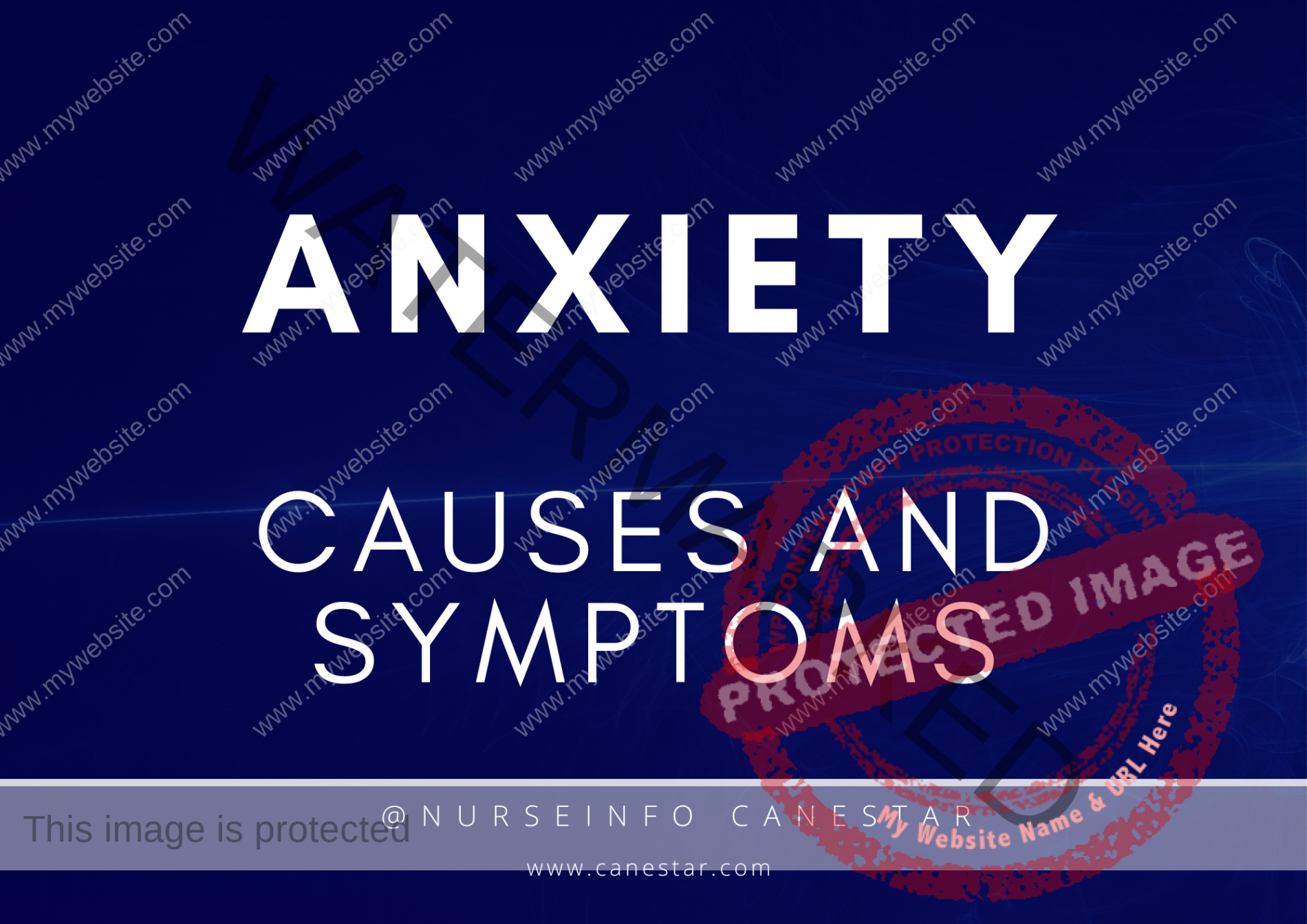Causes and Symptoms of Anxiety
Causes of Anxiety
Anxiety is a common emotional response characterized by feelings of tension, worried thoughts, and physical changes like increased blood pressure. It can be caused by a combination of genetic, environmental, psychological, and biological factors. Here are some key causes of anxiety:
1. Genetic Factors
- Family History: Anxiety disorders can run in families, suggesting a genetic predisposition.
- Biological Traits: Certain temperamental traits, such as shyness and behavioral inhibition, are inherited and can increase the risk of anxiety.
2. Brain Chemistry
- Neurotransmitters: Imbalances in brain chemicals like serotonin, dopamine, and norepinephrine are linked to anxiety disorders.
- Hormonal Changes: Hormonal fluctuations, particularly those associated with thyroid issues or menstrual cycles, can contribute to anxiety.
3. Environmental Factors
- Stressful or Traumatic Events: Experiencing trauma, such as abuse, loss of a loved one, or accidents, can trigger anxiety.
- Chronic Stress: Prolonged exposure to stressful situations, such as financial problems, work stress, or relationship issues, can lead to anxiety.
- Childhood Environment: Growing up in a stressful or abusive environment increases the risk of developing anxiety.
4. Psychological Factors
- Personality: Certain personality traits, such as perfectionism, low self-esteem, and a tendency to be overly critical, can predispose individuals to anxiety.
- Cognitive Patterns: Negative thinking patterns, such as catastrophizing or overgeneralizing, contribute to anxiety.
5. Medical Conditions
- Chronic Illness: Conditions like heart disease, diabetes, and chronic pain can cause anxiety.
- Mental Health Disorders: Other mental health issues, such as depression or substance abuse, often co-occur with anxiety disorders.
6. Lifestyle Factors
- Substance Use: Excessive use of alcohol, caffeine, or drugs can induce anxiety symptoms.
- Lack of Sleep: Poor sleep quality or insufficient sleep can exacerbate anxiety.
7. Life Transitions
- Major Life Changes: Events like starting a new job, moving, or significant changes in personal relationships can cause anxiety.
- Uncertainty: Fear of the unknown or uncertainty about the future often triggers anxiety.
8. Genetic Predisposition and Early Experiences
- Early Childhood Experiences: Inconsistent caregiving, early trauma, or adverse childhood experiences (ACEs) can lead to long-term anxiety issues.
Common Symptoms of Anxiety
Physical Symptoms
- Increased Heart Rate: Often described as palpitations or a racing heart.
- Sweating: Excessive perspiration, even in cool environments.
- Trembling or Shaking: Noticeable shaking of hands or other body parts.
- Shortness of Breath: Feeling like you can’t catch your breath or a sense of choking.
- Chest Pain or Discomfort: Can mimic heart attack symptoms but is typically not heart-related.
- Nausea or Stomach Upset: Includes gastrointestinal issues like diarrhea or constipation.
- Dizziness or Light-headedness: Feeling faint or unsteady.
- Muscle Tension: Tightness or soreness in muscles.
- Headaches: Frequent tension headaches or migraines.
- Fatigue: Feeling unusually tired or exhausted.
- Restlessness: Inability to sit still or feeling on edge.
- Sleep Disturbances: Difficulty falling or staying asleep, or restless sleep.
Psychological Symptoms
- Excessive Worry: Persistent and intrusive thoughts about potential problems or danger.
- Irritability: Increased frustration or anger, often out of proportion to the situation.
- Difficulty Concentrating: Trouble focusing or feeling like your mind goes blank.
- Fear of Losing Control: Worry about going crazy or losing control over actions.
- Hypervigilance: Being overly aware and alert to potential threats or danger.
Behavioral Symptoms
- Avoidance: Avoiding situations or activities that might cause anxiety.
- Compulsive Behaviors: Repetitive actions intended to reduce anxiety (e.g., checking, counting).
- Social Withdrawal: Avoiding social interactions or events.
Cognitive Symptoms
- Catastrophic Thinking: Expecting the worst possible outcome in any situation.
- Racing Thoughts: Rapid and continuous flow of thoughts.
- Indecisiveness: Difficulty making decisions due to worry and fear.
Specific Types of Anxiety Disorders
- Generalized Anxiety Disorder (GAD): Excessive worry about various aspects of life.
- Panic Disorder: Recurrent, unexpected panic attacks and fear of future attacks.
- Social Anxiety Disorder: Intense fear of social situations and being judged by others.
- Specific Phobias: Intense fear of specific objects or situations (e.g., heights, spiders).
- Obsessive-Compulsive Disorder (OCD): Obsessions (intrusive thoughts) and compulsions (repetitive behaviors).
- Post-Traumatic Stress Disorder (PTSD): Anxiety following a traumatic event, with symptoms like flashbacks and avoidance.
Management Strategies
- Cognitive Behavioral Therapy (CBT): Identifying and challenging negative thought patterns.
- Medication: Antidepressants, benzodiazepines, and other medications as prescribed by a doctor.
- Mindfulness and Relaxation Techniques: Meditation, deep breathing exercises, and progressive muscle relaxation.
- Lifestyle Changes: Regular exercise, healthy diet, adequate sleep, and reducing caffeine and alcohol intake.
- Support Networks: Talking to friends, family, or joining a support group.






